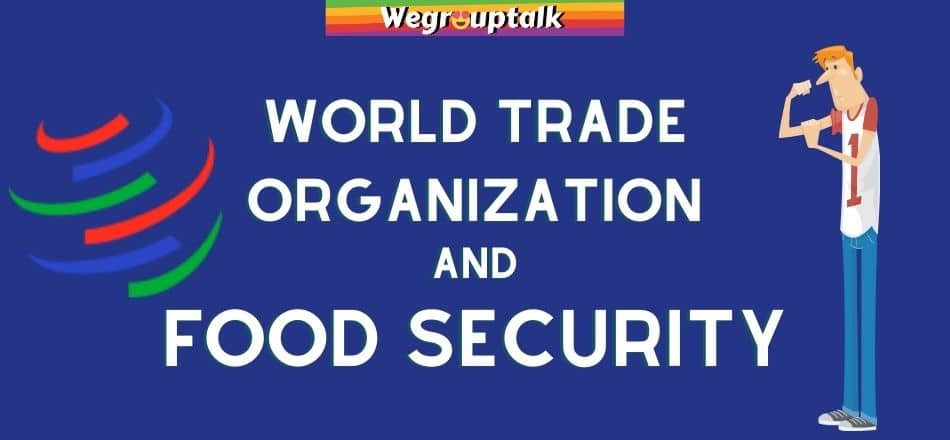Food security is a hair-splitting global issue that gives rise to intense debate. This extends to the quality of food and one’s access to it. It is a political imperative and also a moral one. Several different strategies, including those relating to trade, must be enforced to ensure lasting food security. The government systems are responsible for achieving food security at each level. Governments or sovereigns are free to enact policies that they deem necessary to ensure people’s food security while ultimately fulfilling their international obligations, including rescuing those in need.
What is food security?
As defined by the World Food Security Committee of the United Nations, food security means that all citizens have physical, social, and economic access at all times to adequate, secure, safe, and nutritious food that satisfies their food preferences and dietary needs to live an active and healthy life.
Food security is a combination of the following three elements:
- Food Availability: Foodstuff must be available in adequate amounts and on consistent basis reliability. It considers the stock and production in a given region and ability, by trade or assistance, to carry in food from elsewhere.
- Food Access: People must be able to buy sufficient amounts of food regularly by buying, manufacturing from home, barter, gifts, borrowing or food aid.
- Usage of Food: Consume food must have a positive nutritional effect on individuals. It includes cooking, storage and hygiene activities, people’s well-being, water and sanitation, household feeding, and sharing practices.
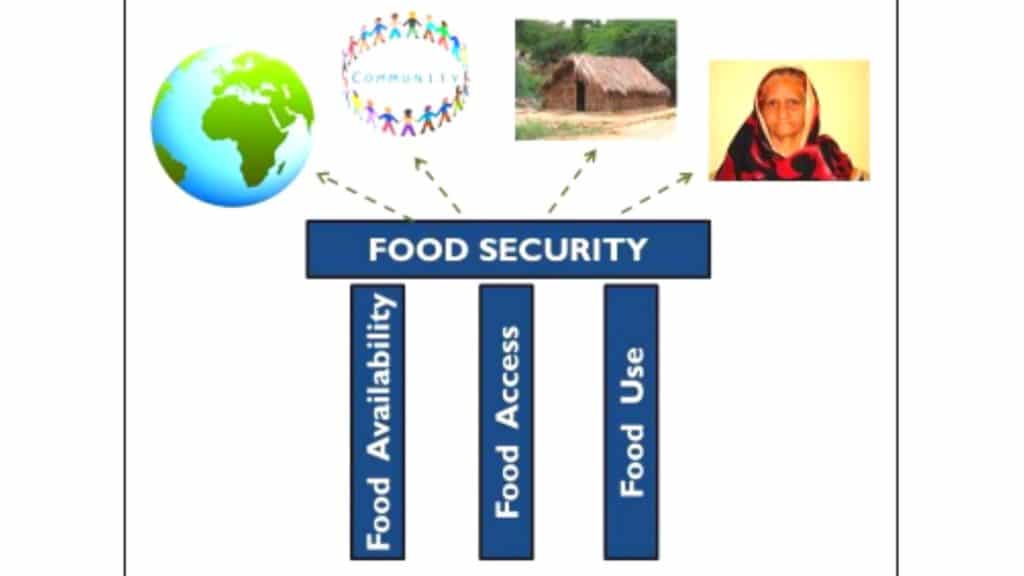
Household capital, disposable income and socio-economic status are closely linked to food protection. It is also nearly related to other problems, such as food prices, global changes in the environment, water, energy, and agriculture growth.
What is food self-sufficiency?
Food self-sufficiency is one of the policy options, backed by many. Even if possible, the self-sufficiency question’s goal is doubtful, considering that such a policy option would in all probability harm national income and decrease buying power, which could compromise food security, hence having a negative impact. However, it is largely criticized by economists as a misguided approach to food security, which places the political priorities before economic efficiency.
What other options could be considered?
Trade is an important factor to achieve food security, but trade alone cannot guarantee food security. Instead, trade is an instrumental, critical component of a comprehensive package of policies to achieve food security. Accompanying policies are also important, such as irrigation policies, nutrition policies, fertiliser and credit access, and other policies, including sound macro and growth strategies.
How can food security help with trade?
Trade can be viewed as a way to connect those who have plenty of food with “those who do not have enough.” Food security is enabled by stabilising our interconnectedness in that sense. The world trade organisation has a vital part to play in it. In this sense, a landmark achievement was the Uruguay Round Agreement on Agriculture (AoA) via clear commitments to reduce protection in domestic support, export subsidies and market access.
The establishment of more operationally effective GATT( General Agreement on Trade and Tariffs) tools and disciplines have launched a reform process aimed at a more fair, productive agricultural trading system. It was careful to ensure that non-or limited trade Distortive support (the green box) remained available and, more significantly, that agricultural and rural assistance measures essential to developing countries’ strategies were excluded from commitments. Policy room, in other words, was preserved.
Implementation of the agreement on agriculture enhances the climate of development and investment, directing capital into more efficient uses, an integral element of food security, both within agriculture and the economy. Also, in the present challenging economic situation, the AoA( Agreement on Agriculture) and, indeed, the world trade organisation as a whole has served as a buffer against the tempting implementation of protectionist measures.
The present agreement is, however, not perfect. It needs to be improved; it must be made more equitable for the system. The WTO negotiations include a proposed trade facilitation agreement as well. Another attempt to alleviate supply constraints facing developed countries is ‘support for trade.’
The requisite political will to make the talks forward is what is now required. If not, increased instability and missed economic opportunities will continue to impact the global economy, and policymakers will lose the opportunity to contribute to food security through trade policies.
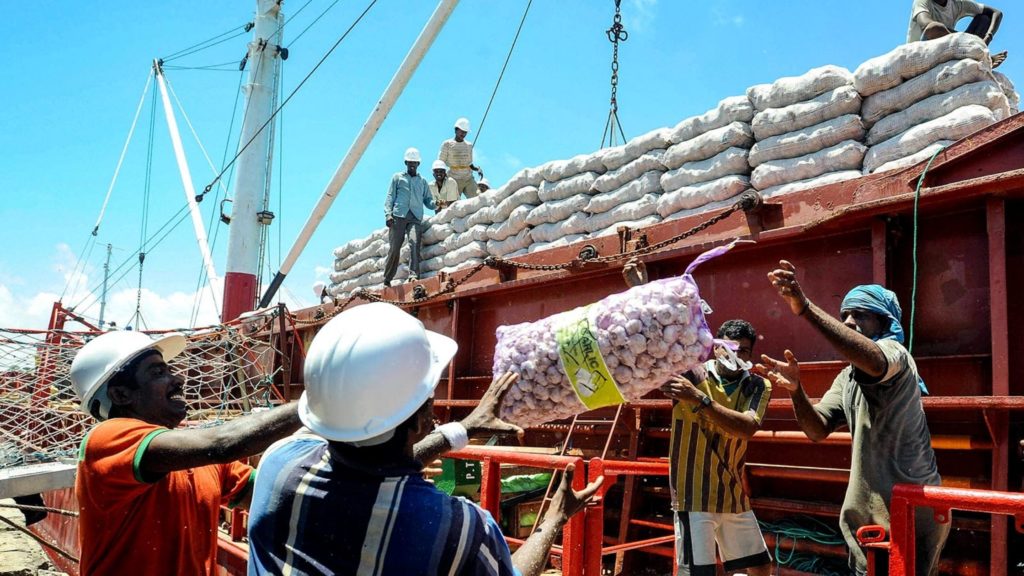
How can trade help with food security?
Now, apart from all this, I would want to tell you in crux how does trade help with food security:
A) Trade will increase incomes
Compared to other countries, it increases the efficiency of all trading nations as they specialize in which they have a ‘comparative advantage’; whether in goods is requiring low labour rates, services needed for the high skilled workforce, or products requiring plenty of land and water. A food surplus nation, such as New Zealand, can export food and use the funds produced to import manufactured goods cheaper than it could produce itself.
B) Trade would improve the supply of food at the national and global, and local levels.
- It helps in managing demand and supply. For example, Yemen has a highly scarce supply of water. It cannot produce enough wheat to satisfy the needs of its people. However, the oil it produces can be sold, and the proceeds can be used to purchase grain. Many nations, including the United Kingdom, rely on trade in food to meet their essential requirements.
- It produces incentives to produce more food. Access to global demand with producers may sell their surplus food, increase and improve their production via economies of scale, effectiveness. This would further increase yields, lower prices, and increase the reduction of waste.
- As the production of agricultural products most effectively and efficiently. For a given collection of resources such as land, water, chemicals, labour, energy, and sunshine. This is becoming more important as climate change is affecting agriculture-producing countries. Countries that will, with free trade most efficiently and effectively, produce food. This would also ensure the protection of that food for the other countries who can’t because of some reason.
- It lowers costs by exchanging technologies and knowledge of productive techniques and equipment for agricultural production. Sub-Saharan Africa and developed countries currently have a sizeable agrarian productivity gap; trade and investment could help close this gap and increase agricultural yields.
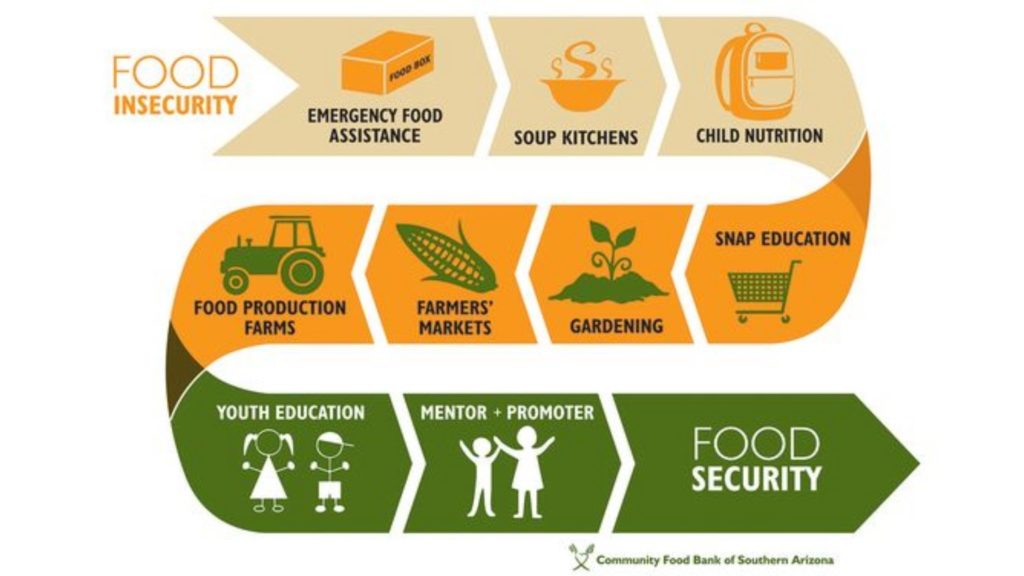
C) Trade will have an impact on the prices
- Through diversifying risks: The global production of a single food crop is less variable than that of an individual country’s output. Crop failures in even one country will have a reduced impact when the country is open to global trade as a price change can be shared among more consumers, and hence it could be diluted.
- Through banning exports: Changes in prices, whether local or global, reflect the market’s adjustment to an imbalance between supply and demand ( albeit slowly, given the slow supply response of agricultural production). Such price shifts are a crucial feature of markets and make it possible to signal food shortages. While export bans will still have adverse international implications but keep the domestic prices down at little prices, the government uses them.
All said and done; trade benefits are greater if market mechanisms work well.
Food security agenda at WTO?
At the Ninth Ministerial Conference of the World Trade Organization (WTO) in Bali, Indonesia, food security was widely discussed between December 3 and 7, 2013. At that meeting, India’s Minister of Commerce, Anand Sharma, declared that India would continue its current farm subsidy arrangements, even though they were not in line with WTO’s draft.
The proposal specified that temporary relief of up to four years from the provisions of WTO law would be provided to developing countries where farm subsidies that distort the market can only be limited to 10% of total output. According to the WTO, India’s food security act is the market food distorting subsidy, as the government buys food grains at market prices and sells them to more than 65% of the population at prices below the market rate.
Developed and developing countries sound to be at war with each other at the conference. Developed countries argued that India’s food security act might distort global agricultural commodity prices and eventually harm farmers interest in developed countries. In contrast, India argued that such food security acts are important because they help in alleviating poverty. Moreover, India has made it clear that subsidised food grains are reserved for consumption at home and not for export.
Many developing countries, including India, felt that the world trade organisation’s policies aimed to foster developed countries mercantilist ambitions at the expense of developing countries. Therefore many questions arose amid the conference, including “Is it possible for India and the governments of other developing countries to create a safety net for the poor without reaching the world trade organisation agreements?”
Unfortunately, no member nations have the answer. Before the end of the WTO meeting, all the member countries agreed that an interim process would be placed before a definitive solution was achieved. All countries have been allowed to negotiate a durable solution agreement for adoption now.
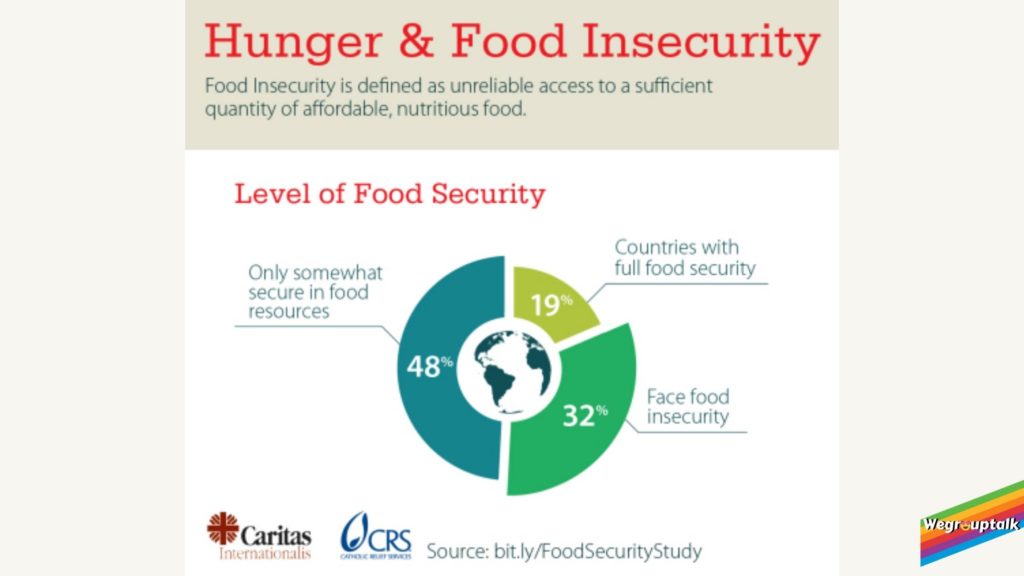
In the meantime, under the agreement on agriculture, member states will be secured against challenges with the WTO concerning public stockholding schemes for food security purposes.
India and other developing nations who are working hard to feed the poor and ensure food security have been blessed by the WTO conference outcome. Furthermore, the positive result at the conference has announced the reputation of WTO as an organisation.
The WTO is now seen as an agency that is not biased towards developed countries but aims at both developed and developing countries’ well-being. Through this conference, India has shown that it is serious about the Food security act and is concerned about the health of its people. Moreover, it has made it clear to the world that it will not make any compromises or modifications to its food security policies.
Well, in the end, I would like to conclude by mentioning that what is important to recognise right now is that food security is an essential concern as life cannot exist without food. So there would be no point of existence!
ALSO Read- Role of India in improving the G20 Summit Osaka
Follow us on FACEBOOK, INSTAGRAM and TWITTER to stay connected.

